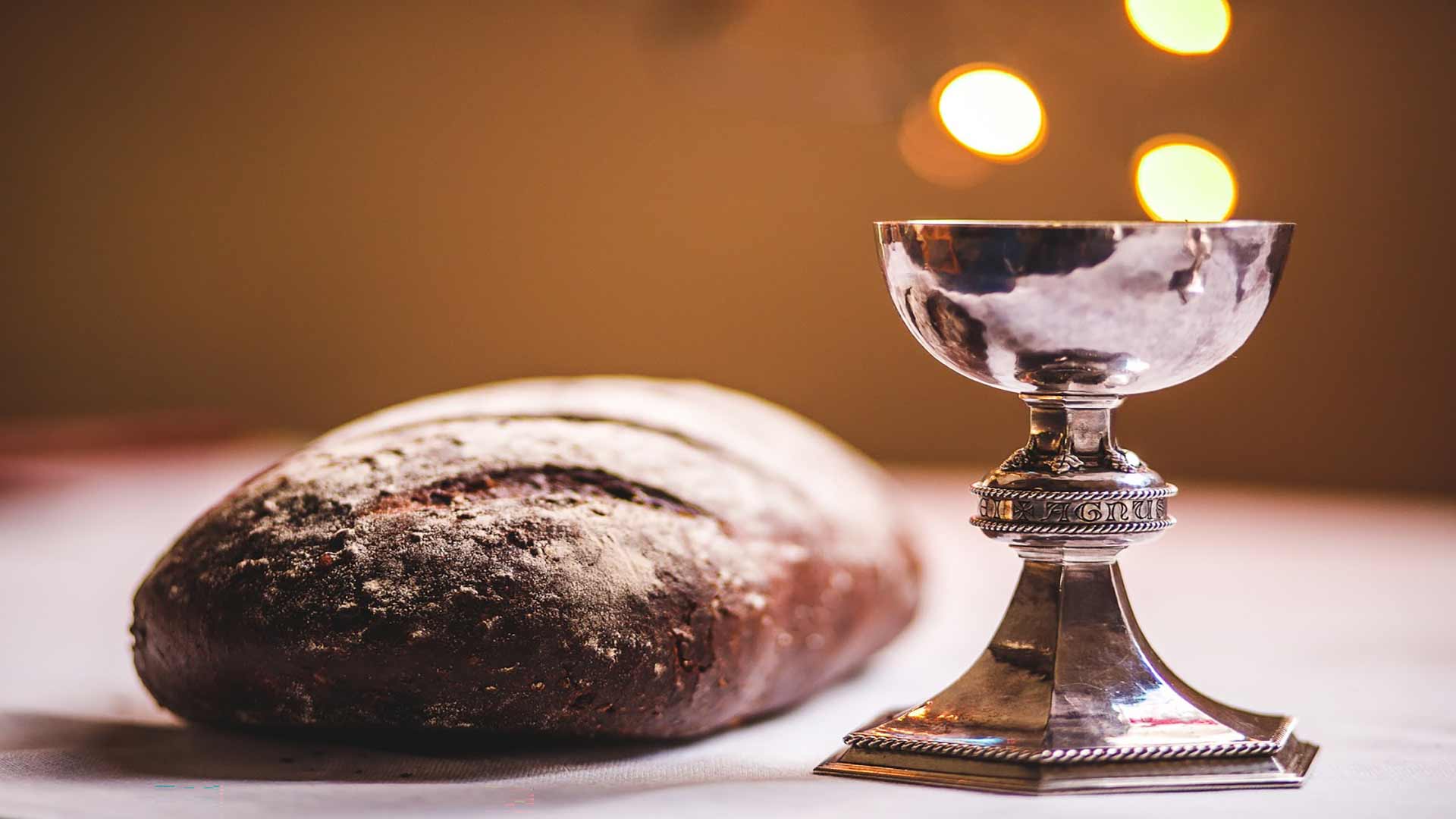Bread of Wisdom
This Sunday, the Readings and the Psalm focus on wisdom. We get to see how worldly wisdom is no wisdom at all, and how divine wisdom has provided food for thought since times immemorial.
In the First Reading (Prov. 9: 1-6), wisdom is personified by a woman who has built her house on seven pillars. She gears up for the inauguration by slaughtering her animals and mixing her wine. (‘Mixing’, because with the process of distillation still unknown, the potency of wine was increased by the addition of herbs and spices). After she has set her table, she sends out her maids to call the meek and humble of heart to partake of her bread and wine. Whereas she has invited ‘whoever is simple’, she exhorts whoever is ‘without sense’ to walk in the way of wisdom. That is to say, one is expected to be simple, but never naïve.
The Psalm (33: 2-3, 20: 11-15) reminds us that the wise bless the Lord at all times, give him glory and praise. The humble are always happy to hear about God; they revere Him and the saints and feel blessed. The Lord calls us his ‘children’ and also counsels us to live devoutly, guarding our tongue and lips from falsehood. He lets us in on this secret of a long and happy life, which, alas, only the wise understand. We are told that it is not enough to shun evil but also proactively seek to do good. And, even while we engage in war to defend truth and justice, we must continually strive after peace: a lesson that only the truly wise imbibe.
In the Second Reading (Eph 5: 15-20), St Paul too exhorts us to tread life’s path wisely. This involves keeping good company and never wasting one’s time. Of course, understanding the will of God is the touchstone. The Apostle to the Gentiles views wine and song with scepticism, for both tend to slacken the will and cause reason to falter. He therefore recommends that talking and feasting be focussed on the Lord. Finally, the aim is to extol Him and at all times to give Him thanks.
To achieve the goal of a proper moral formation, the Angelic Doctor St Thomas of Aquinas points to the theological virtues – faith, hope, and charity. While they all happen through union with God, it is through charity, or love, that our will and faculties are aligned to the supernatural end. Our life’s efforts are a waste of time if we do not cultivate the virtues; in fact, everything is futile unless centred on God. And once God becomes the alpha and omega, the cardinal virtues of temperance, fortitude, prudence and justice come into play. Temperance and fortitude moderate the passions; prudence enlightens reason, and justice regulates the will.
That may seem like a roadmap to virtuous Christian living, yet it is not enough. ‘A virtue is a habitual and firm disposition to do the good’ (CCC 1803) but it is carried forward not by itself but by the gifts of the Holy Spirit: wisdom, understanding, counsel, fortitude, knowledge, piety, and fear of the Lord (cf. CCC 1830-1831). And sustaining it all is the Holy Eucharist, rightly called ‘the source and summit of the Christian life’ (CCC, 1324). Herein we encounter the bread which Jesus has given ‘for the life of the world’ and so, ought to occupy a central place in our day-to-day life.
From the Gospel text (Jn 6: 51-58), the fourth instalment of the Bread of Life discourse, we know how many Jews abhorred Our Lord’s teaching on his Body and Blood. On the other hand, much that is said about the Eucharist may now seem obvious to us, for we have been taught that the Sacrament is Our Lord’s redemptive Sacrifice at Calvary; that the Bread is Our Lord’s Body and the Wine is His Blood; that Jesus’s presence therein is real, and that partaking of it is a sure means of growing closer to Him. But then, have we had the opportunity to systematically reflect and internalise the doctrine? This is of the essence.
In conclusion, while a little beyond today’s text from the Book of Proverbs, a contrast is established between a wise lady and a foolish woman; and the Second Reading juxtaposes the sagacity of Christian life with the stupidity of godless living, the Gospel effectively draws our attention to the wisdom of Our Lord’s words – ‘I am the living bread that came down from heaven; if any one eats of this bread, he will live for ever’ – vis-à-vis the world’s reckless materialism. The saving grace is that wisdom has come to us in the Incarnation of the eternal Word of God, Jesus Christ Our Lord.
Banner: https://rb.gy/py45eb
